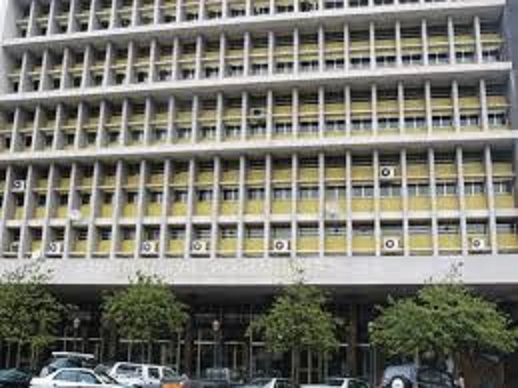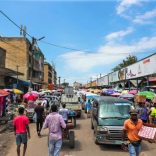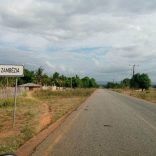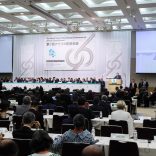Mozambique: H1 State revenue €2.3B, GDP down 3.9% - govt
Bank of Mozambique: Rogério Zandamela took office yesterday

Mozambican President Filipe Nyusi on Wednesday appointed Rogerio Zandamela, a senior official at the International Monetary Fund (IMF), as governor of the Bank of Mozambique.
Zandamela takes over from Ernesto Gove, who leaves the central bank after serving two five year terms of office. Gove was appointed in 2006, and given a second term in 2011.
Zandamela is the Mozambican who has risen highest in the IMF, where he has been working since 1988. He is currently head of mission for Djibouti and Somalia, in the IMF’s department for the Middle East and Central Asia. Over an IMF career spanning almost 30 years, he has also been resident representative in Brazil, and head of mission in Armenia, Costa Rica, Gambia, Guatemala, Liberia, Malaysia, Nicaragua, Peru, Trinidad and Tobago and Zimbabwe. He holds a doctorate in economics from the John Hopkins University in the United States.
Zandamela is well placed to repair the ties between Mozambique and the IMF. Currently the IMF’s programme with Mozambique is suspended, as is the second instalment of a 283 million US dollar loan from the Fund’s Standby Credit Facility (SCF).
The suspension was in reaction to undisclosed government-guaranteed loans of well over a billion dollars contracted in 2013-14, in the closing years of the presidency of Armando Guebuza. The loans became public knowledge in April, and resulted in all Mozambique’s main western partners suspending financial aid.
In late April, an anonymous IMF official told the “Financial Times” of London that this scandal “is probably one of the largest cases of the provision of inaccurate data by a government the IMF has seen in an African country in recent times. They deliberately kept from us at least a billion dollars, possibly higher, of hidden loans”.
The IMF’s tone became even tougher in May when the Fund’s Managing Director, Christine Lagarde, in an interview with the BBC, said “When we put in place a programme with a country, we look at corruption. We look at what reforms could improve the corruption level. When we see a country and a programme with the IMF where international community money is committed, that is not respecting its financial disclosure engagement, which is clearly concealing corruption, we suspend the programme. We did that just recently with Mozambique.”
The IMF has been demanding an international, independent forensic audit of the Mozambican foreign debt as a condition for the return to normal relations. Just two days ago the outgoing IMF country representative, Alex Segura, said in Maputo that such a forensic audit “will be important to restore trust with donors”.
Zandamela takes over the helm at the central bank at a time of increased inflation and sharp depreciation of the national currency, the metical. The annual inflation rate has now reached around 20 per cent, and so far this year the metical has depreciated by 34 per cent against the dollar.
The Bank of Mozambique has depended heavily in increasing interest rates in order to fight inflation. In late July it increased the Standing Lending Facility (the interest rate paid by the commercial banks to the central bank for money borrowed on the Interbank Money Market) by 300 base points, from 14.25 per cent to 17.25 per cent. This level of interest rates is unprecedented in recent years.












Leave a Reply
Be the First to Comment!
You must be logged in to post a comment.
You must be logged in to post a comment.